Africa
Europe’s Dilemma: Confronting Sudan’s Kizan Islamists
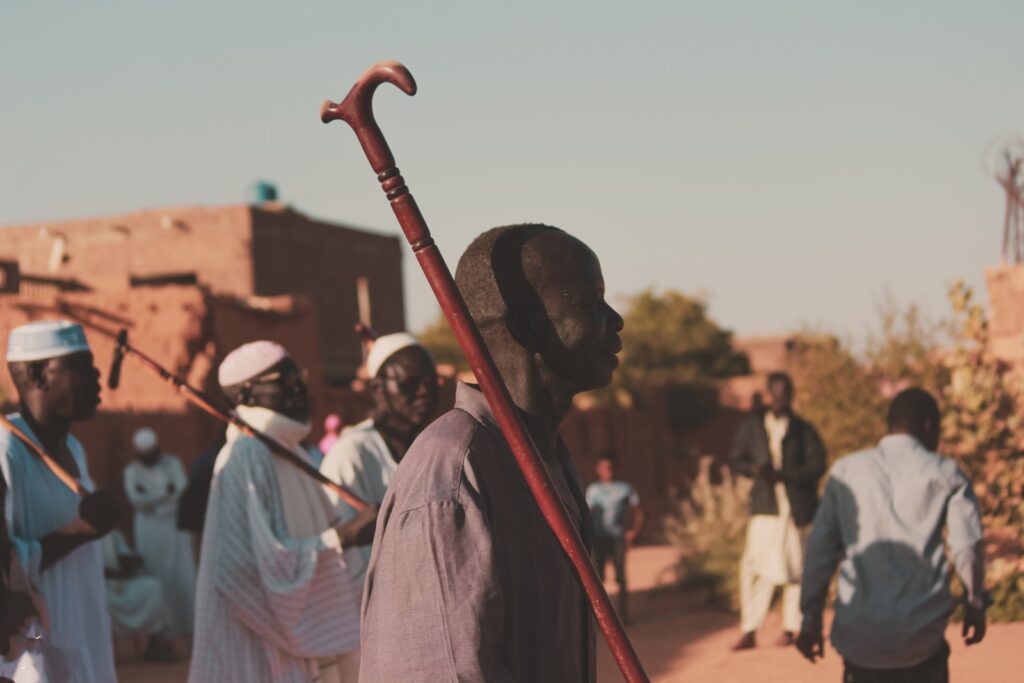
Sudan is an opportunity for the Brotherhood to expand its influence. The sanctions imposed on Sudan do not provide solutions to rein in the Brotherhood (Al-Kizan), whose movements took military dimensions by recruiting its members to defend the army, taking advantage of the turbulent security situation to expand its influence, and why not turn Sudan into an incubator for the group, which suffered political and widespread losses in the rest of the Arab countries.
KHARTOUM – The European Union’s threat to impose sanctions on the main parties in Sudan to stop the war was a sign of the possibility of abandoning its cold stance on the crisis. It remained a spectator, except for a few perceptions that it presented from time to time, which do not suggest that it is severe in its moves, which confirms its keenness to end it, close to a war that may extend its sparks to him.

The European cry for setting a framework for sanctions next September implies excellent concern about continuing the conflict between the army and the Rapid Support Forces. Still, it is devoid of moves to practically participate in reaching a steadfast armistice and seeking a cease-fire. The European Union should have put forward an initiative or adopted a complete vision for a solution.
Everyone contented themselves with resounding slogans and watching perceptions from here and there as if the repercussions of the war would stop at the end of the escalation of the file of illegal immigration and the deterioration of the humanitarian situation and would not extend to a direct threat to European interests if extremists managed to seize the reins in Sudan or drag it into the bitter quagmire of civil war.
Al-Kizan’s movements took on military dimensions after including many extremist elements in the war to defend the army. Western countries cannot pursue terrorist organizations that do not hide their expansionist projects in the region.
Chaos arouses the appetite of the Islamic forces in Sudan. Recent information confirms the participation of extremist organizations in the war under the guise of the dissolved National Congress Party and the Islamic Movement in Sudan, which means that the matter has become a threat to neighboring countries and parties that have interests in this country or close to it, not to mention On the expansion of the belt of militants, as their presence in West and East Africa puts Sudan between the two hands of pincers that will not be easy to contain later. The scope of humanitarian, economic, and security crises expands.
This result will prompt the European Union to move because it will lead to more losses for the central Western countries, especially France, whose interests are beginning to be exposed to great dangers in Mali and Niger and the entire West African coast. If Sudan is added to it, a large area will turn into significant centers to shelter Extremists and terrorist hotbeds that attract elements known to target the West in general.
The United States has put its feet in the crisis through joint mediation with Saudi Arabia. The Jeddah negotiations are almost frozen and need help to achieve a breakthrough. Many African countries have tried, individually and collectively, to present political approaches that have yet to be successful. At the same time, the European Union focuses on the symptoms of the crisis without Going into its essential details. However, its repercussions on him will not be limited to increased asylum and displacement.
European countries chose the traditional human dimension in the crisis, which is meaningful. They tried to give it dramatic features by frequently talking about killings, bombs, looting, and rape and shedding light on some tragedies that bring sympathy.
Stopping the war requires careful reading to examine its fundamental causes and what it might lead to in the future. In both cases, all fingers point to the presence of the remnants of the regime of former President Omar al-Bashir infiltrating the Sudanese military establishment and their desire to employ him to return to power and to defeat every attempt to establish a democratic transition and a state on It is headed by a civilian government, which is the supposed goal that the European Union seeks, and adopts in its political discourse through Western envoys and ambassadors who went to Sudan before the war and stressed the importance of the military establishment leaving the field of politics.
Suppose the European Union will know the negative aspects of the Sudanese scene later. In that case, any promises of economic sanctions or political appeals will become meaningless because the crisis has structural joints that must be dealt with with a comprehensive vision. The initiatives, with an appreciation for their importance and the countries sponsoring them, have yet to decipher the Sudanese crisis.
It will not help the European Union to distance itself from engaging in a hot and open crisis under the pretext that it is a war that burns everyone who approaches it, reduces it to the humanitarian aspect, and yields to the visions of Western organizations, as the political and security elements are essential.
European steps must reflect some of the politics and security in the moves taken by the Union or its countries. What has been said about their willingness to impose sanctions appears to be jumping on the essence of the crisis or a discharge of responsibility before the Western people because everyone knows that the effect of the sanctions weapon on people is tiny. Sudan has a tremendous and accumulated experience with US sanctions that enabled it to live with it for nearly three decades.

The European Union’s distancing from engaging directly with the crisis and adopting practical steps is in the interest of the Kizan (the Sudanese Brotherhood)
Perhaps the information provided by the rapid support delegation to European circles recently revealed many ambiguous points about the reality of the war and its repercussions, with the participation of a member of the European Parliament of Hungarian origin, Márton GYÖNGYÖSI, who is a member of the Parliament’s Foreign Affairs Committee, Anna VAN DENSKY, the journalist, and James WILSON, editor of the political report. In the European Union, Bjorn HULTIN is an expert in international relations and a former member of the European Parliament of Swedish origin.
The discussion about Sudan and Europe’s role in the crisis was significant, as it was the first official action to be recorded in the agenda with the records of Parliament. It found great resonance with many Western circles because imposing sanctions on the parties involved in Sudan without participating in negotiations or putting forward initiatives would make the voice of Europe ineffective and perhaps absent. It must take its place in the discussion about Sudan.
Sudanese circles say that the countries of the European Union refrain from engaging directly with the crisis and adopt practical steps in favor of the Kizan (the Sudanese Brotherhood), which brings to mind previous doubts about their sponsorship by some Western countries.
Suppose these doubts still apply to the current situation. In that case, European countries may find themselves facing a dangerous belt of crises because Kizan today has an overwhelming desire not to defeat the army and to confront the Rapid Support Forces, given that its commander, Lieutenant General Muhammad Hamdan Dagalo “Hamidti” is their number one enemy. In Sudan today, the oppressive military hand is blocking the way for them to return to power again.
In addition, the Kizan movements took on military dimensions after including many extremist elements in the war to defend the army. Western countries cannot pursue terrorist organizations that do not hide their expansionist projects in the region and their targeting of Western interests. The fear that Sudan will turn into a solid incubator for these, at that time hints, will not work. Or the European Union’s threats to deal with the tangled reality in Sudan.
Africa
Kenyan President’s Church Donation Causes Riots
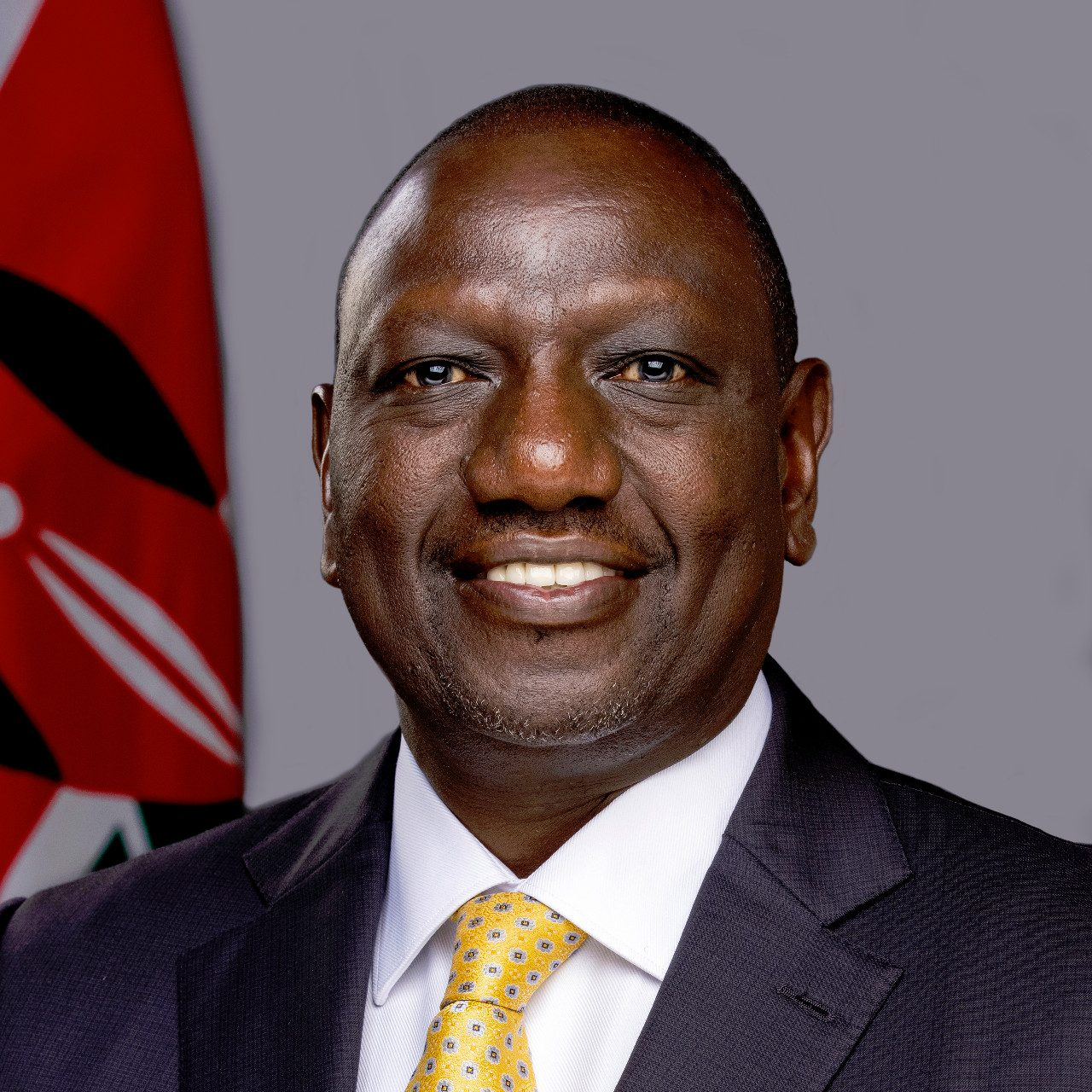
A church donation by Kenyan President William Ruto has caused unrest in the country, the BBC reports. Protesters tried to storm a church that had received a large donation from the head of state. Police had to use force and tear gas to disperse them.
The protesters tried to enter the church and set it on fire. The demonstrators used stones to block roads. In the ensuing clashes with the police, some people were detained, the exact number of whom was not specified.
The donation of 20 million shillings ($155,000) to the “Jesus Victorious Ministry” in the Nairobi suburb of Roysambu has caused discontent among Kenyans struggling with the high cost of living. Ruto defended his actions and offered a similar gift to another church in Eldoret.
According to Ruto, the donation is an attempt to address the country’s moral decline. “Kenya needs to know God so that we can put to shame those who tell us we cannot communicate with the church,” he noted.
Last year, both Kenya’s Catholic and Anglican leaders rejected donations, arguing that there was a need to protect the church from being used for political purposes.
Kenyans were angered by a series of tax increases introduced after Ruto was elected in 2022. In 2024, a wave of nationwide protests forced Ruto to withdraw his finance bill, which contained a series of tax increases.
Photo: His Excellency Dr. William Samoei Ruto was sworn in on September 13, 2022, after winning the Presidential election.
Africa
Shadows Over Democracy in Mozambique
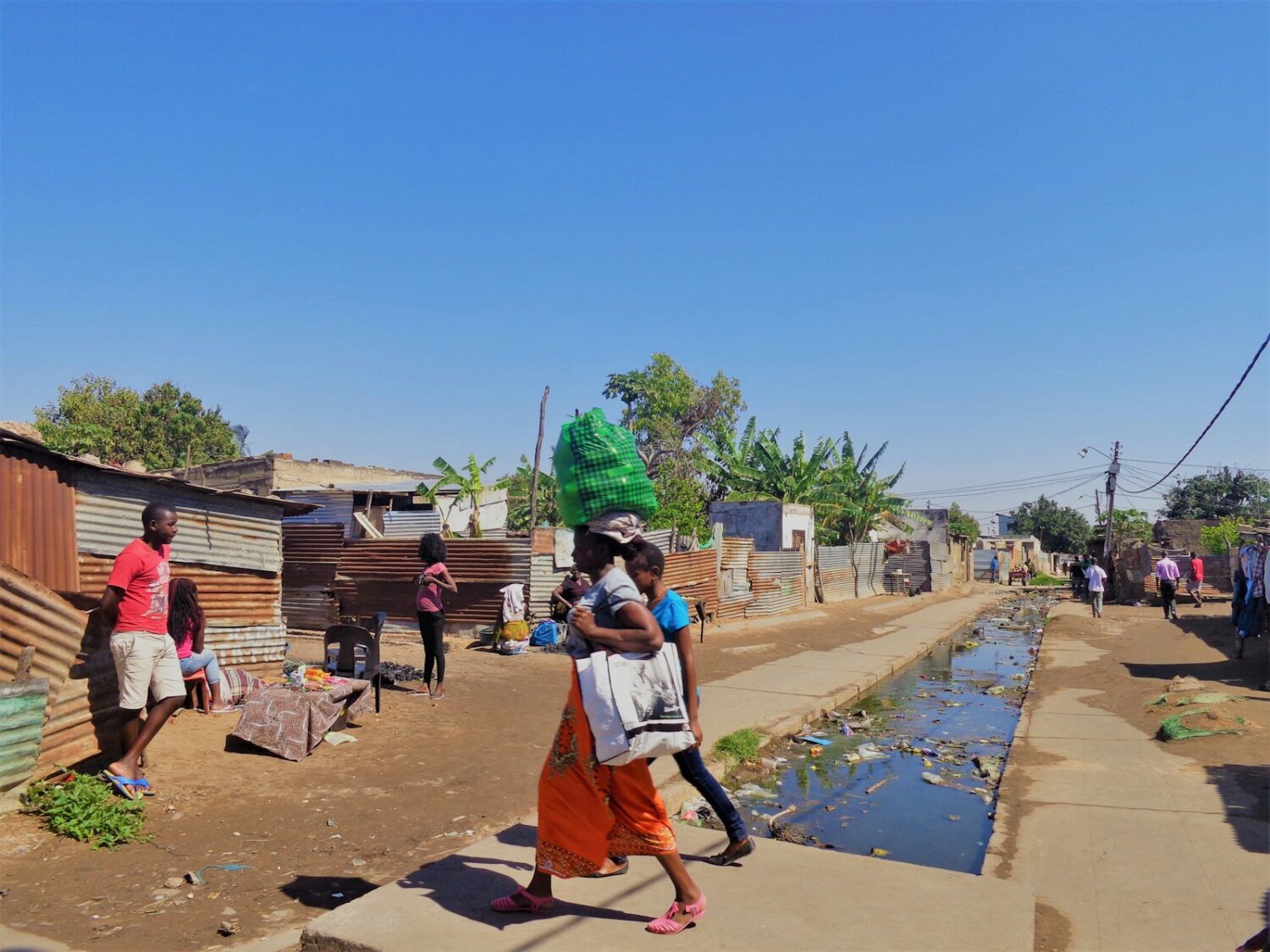
In a deeply concerning development in Mozambique’s political landscape, the European Union (EU) has condemned the recent killings of two prominent figures: Elvino Dias, a legal advisor to Presidential candidate Venâncio Mondlane, and opposition politician Paulo Guambe. The EU stated that these politically motivated murders have no place in a democracy and expressed its heartfelt condolences to the families and friends of the deceased.
The EU’s strong condemnation comes in the wake of alarming reports regarding the violent dispersal of political supporters following last week’s elections in Mozambique. The Union has called for an immediate, thorough, and transparent investigation into the killings, demanding justice for those responsible and clarity on the circumstances surrounding these outrageous crimes. The EU reiterated its hope for a timely response from the Mozambican Government, emphasizing that a quick and effective inquiry is essential to restore public confidence.
In addition to seeking accountability for the murders, the EU has urged all parties to exercise restraint during this turbulent post-electoral period. The organization underlined the importance of respecting fundamental freedoms and political rights, asserting that strong protective measures for all candidates are crucial to ensuring their safety and fostering a more stable political environment.
Meanwhile, the European Union Election Observation Mission remains actively engaged in Mozambique, closely assessing the ongoing electoral process. The EU expects the country’s Election Management Bodies to uphold integrity in their operations, ensuring that the electoral process is conducted with due diligence and transparency—reflecting the will of the Mozambican people.
As the nation grapples with the implications of these political killings, the international community watches closely, hoping for accountability, peace, and the preservation of democratic values in Mozambique.
Africa
The European Union and Morocco: Navigating Trade Relations and Geopolitical Issues
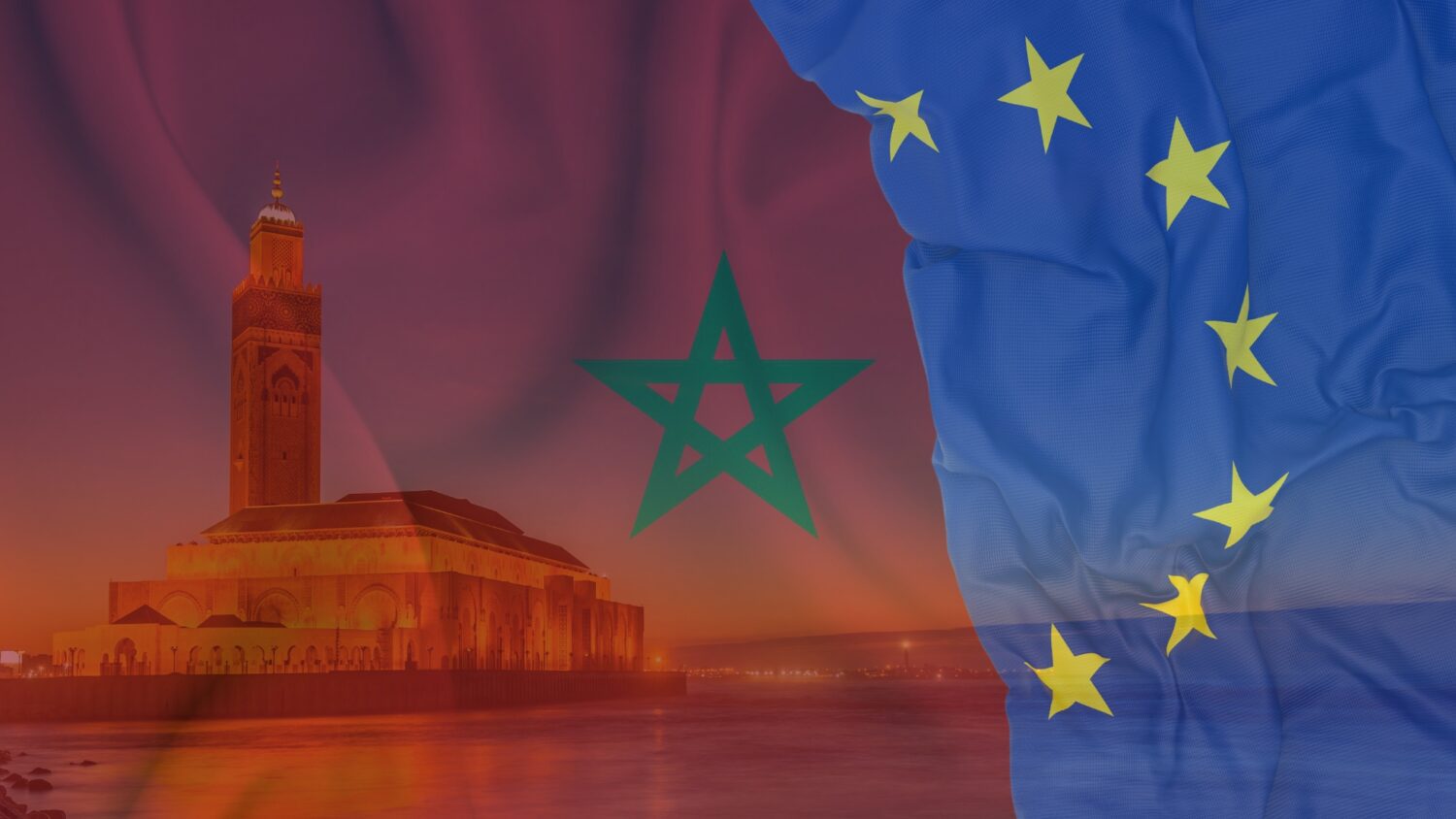
The European Union and the Agreements with Morocco: An In-Depth Analysis of Recent Developments
The European Union (EU) has recently taken crucial decisions regarding its fisheries and agriculture agreements with Morocco, a matter that raises complex economic, political and legal issues. These agreements, which allow European vessels access to Moroccan waters and facilitate the import of Moroccan agricultural products into the European market, are essential for both parties. However, they are also marked by tensions linked to the Western Sahara issue.
Legal background to the agreements
The fisheries and agriculture agreements between the EU and Morocco have been renewed several times since they were first signed. However, their legitimacy has been called into question, notably following rulings by the Court of Justice of the European Union (CJEU). In 2016, the CJEU annulled a fisheries agreement, arguing that it failed to comply with international law, particularly with regard to the rights of the Saharan people. The Court stressed that the resources of Western Sahara cannot be exploited without the consent of its people, leading to a re-evaluation of existing agreements.
Morocco’s position and international support
Morocco has championed an autonomy initiative for Western Sahara, proposing a solution that would allow the territory to enjoy a degree of autonomy while remaining under Moroccan sovereignty. This initiative has received the support of over 100 nations, including major geopolitical players such as the United States, France, the United Arab Emirates, Israel, Germany and Spain. This international support is crucial for Morocco, as it strengthens its position on the international stage and enables it to legitimize its actions regarding the Western Sahara.
Morocco maintains that the proposed autonomy is the best solution for ensuring stability and development in the region. The Moroccan authorities maintain that this initiative could encourage dialogue and cooperation between the various stakeholders, while guaranteeing respect for the rights of local populations.
Reactions from the Polisario Front
In contrast, the Polisario Front, which claims independence for Western Sahara and is supported by Algeria, advocates a referendum on self-determination for the Saharan people. This position has historically enjoyed some international support, but is currently less popular in the current geopolitical context.
The difficulties of implementing a referendum are manifold. Analysts point out that issues such as voter registration, factional tensions and security concerns make it a complex option. Moreover, international support for the Polisario Front has waned in recent years, further complicating its position.
Economic consequences of the agreements
The fisheries and agriculture agreements are of vital importance to the Moroccan economy. The fishing industry, in particular, is an essential source of income and employment, especially in coastal regions. Access to the European market enables Moroccan fishermen to sell their products at a competitive price, while meeting the growing demand for seafood products in Europe.
At the same time, the agricultural agreement also opens up opportunities for Morocco to export agricultural products, promoting the development of Moroccan agriculture. For the EU, these agreements guarantee a stable supply of food products while supporting sustainable fishing, which is crucial in the context of growing concerns about food security in Europe.
Future challenges
The challenges facing the EU and Morocco are many. The need to reconcile economic interests with the requirements of international law and humanitarian concerns is paramount. The situation in Western Sahara continues to be a sticking point influencing EU negotiations and decisions.
The EU seeks to maintain advantageous trade relations with Morocco while respecting the principles of international law. The complexity of this situation calls for continuous and constructive dialogue between the various parties, in order to find lasting solutions that are acceptable to all.
Future prospects
In the future, the EU may consider modifications to its agreements to ensure their compliance with international legal standards while safeguarding its economic interests. Enhanced dialogue between the EU and Morocco will be essential to navigate these complexities. Morocco’s international support could also play a key role in future discussions, influencing EU decisions.
In summary, the EU’s decision on fisheries and agriculture agreements with Morocco represents a delicate balance between economic interests, legal considerations and humanitarian issues. Future discussions will need to take these various aspects into account to achieve sustainable solutions, while recognizing the international context that shapes this dynamic. The future of EU-Morocco relations will depend on the ability of both parties to overcome current challenges and cooperate constructively for the development of the region.
-

 EU & the World6 days ago
EU & the World6 days agoWho Is Valeria Marquez? About the Influencer Who Was Shot During Livestream
-

 EU & the World4 days ago
EU & the World4 days agoChris Brown Tour 2025: Updates on Concert Dates, Cities, Ticket Prices & More
-
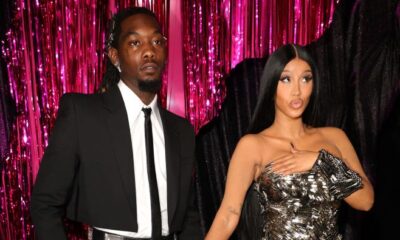
 EU & the World7 days ago
EU & the World7 days agoCardi B & Offset’s Relationship Timeline: From Marriage To Cheating Drama & Split
-
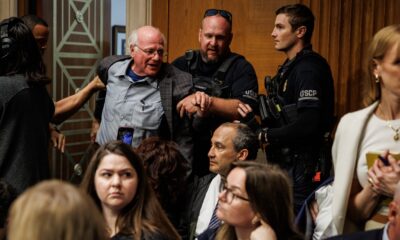
 EU & the World5 days ago
EU & the World5 days agoWho Is Ben Cohen? About the Ben & Jerry’s Co-Founder Who Was Arrested During Senate Hearing
-

 EU & the World3 days ago
EU & the World3 days agoJosh Freese: 5 Things to Know About the Former Foo Fighters Drummer
-
Travel6 days ago
Crete earthquake: Is it safe to travel to the Greek island following tsunami warning?
-
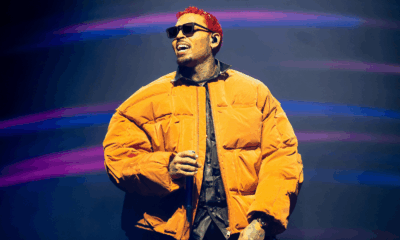
 EU & the World5 days ago
EU & the World5 days agoChris Brown’s Net Worth: How Much Money He Makes Now
-

 Entertainment4 days ago
Entertainment4 days agoEurovision 2025: Music, Politics, and the Final 26 Set Amid Controversy and Spectacle









